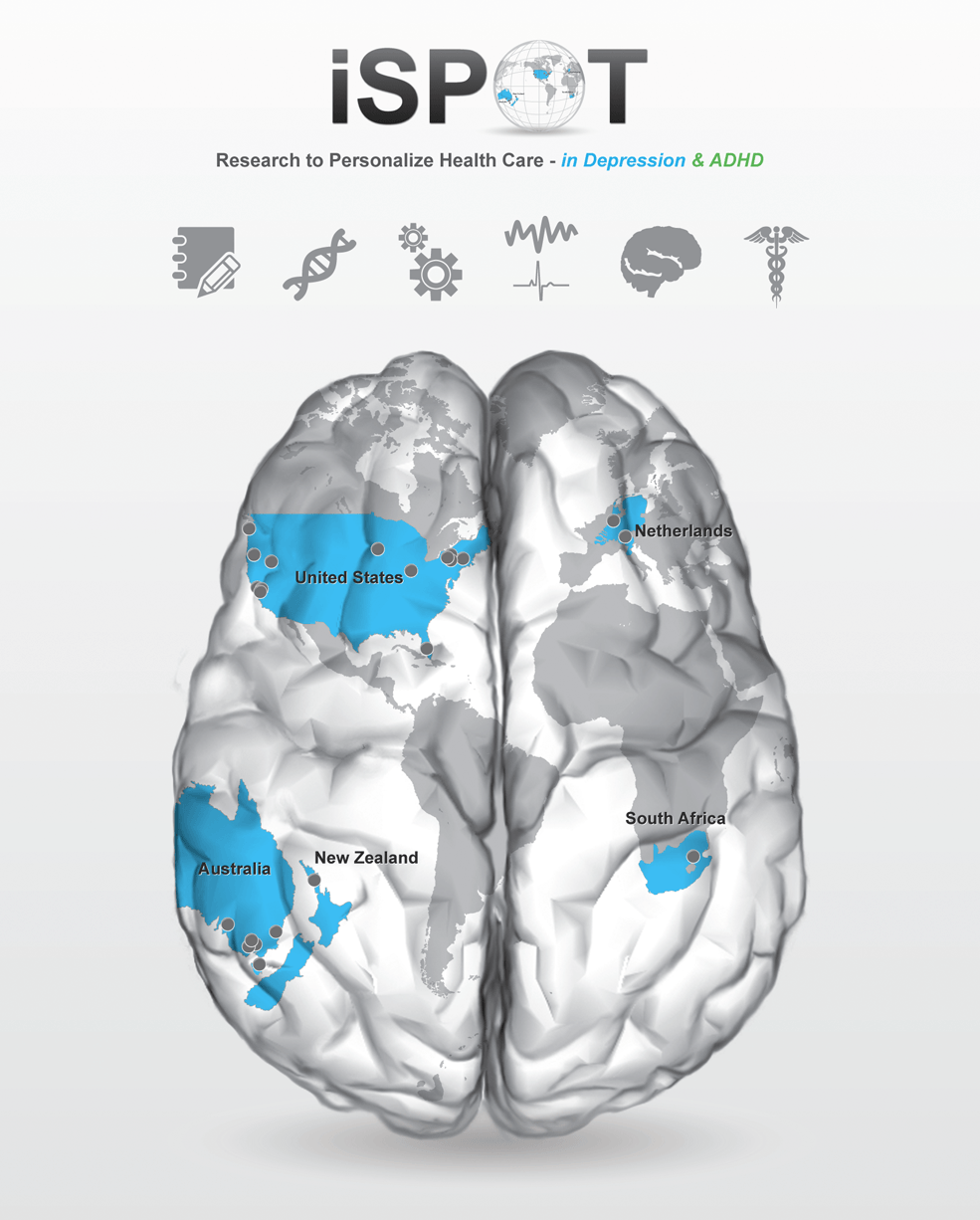
About the ISPOT-A study
The International Study to Predict Optimized Treatment in Attention Deficit/Hyperactivity Disorder is a long running multicentre and open-label trial to identify biomarkers of ADHD and predict treatment response to short-acting methylphenidate in children and adolescents diagnosed with this disorder.
The primary outcome measure is to determine whether the genetic-brain-cognition function markers (or combination of markers) ‘normalize’ with acute drug treatment in ADHD, while the secondary outcome measure determines whether markers of acute treatment prediction are also predictive of functional outcome over 6-12 months.
The Brainclinics Research Institute
Our institute is the only research body in Europe to participate in this important study, and our researchers affirmed that EEG’s are excellent biomarkers to predict methylphenidate response on the treatment of ADHD.
About the ISPOT-D study
The International Study to Predict Optimised Treatment in Depression is the largest personalized medicine research study in depression ever.
The aim of the study is to identify genetic, physical (brain) and psychological (cognitive) markers (or combinations of them) that predict specific response to a range of antidepressants treatment (Escitalopram, Venlafaxine, Sertraline) in patients diagnosed with major depressive disorder. This study is focused on outcomes which may impact on how “personalised medicine” is implemented in depression.
Our participation
We investigated the collected EEG data for 1008 MDD (Major Depressive Disorder) patients to see whether connectivity in alpha and theta frequencies of the DLPFC-DMPFC-sgACC network changed from pre- to post-treatment between: (i) patients and controls, and (ii) responders (R) and non-responders (NR). We dicovered that women exhibited higher alpha and theta connectivity compared to males, both pre- and post-treatment. Furthermore, theta, but not alpha, hypo-connectivity was found for MDD patients. A decreased alpha connectivity after treatment was found only for male responders, while non-responders and females exhibited no changes in alpha connectivity. Decreasing alpha connectivity could potentially serve as a treatment emergent biomarker, (in males). Furthermore, it could be useful to apriori stratify by gender for future MDD studies.
We also found that antidepressant treatment could be vastly improved by reducing the number of treatment steps, and a good way of achieving that is by employing biomarkers that can predict treatment outcome.
